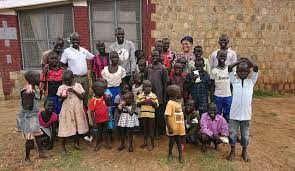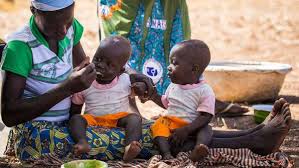According to humanitarian workers, over 300 young children were rescued from an orphanage in the capital of Sudan after being confined inside while combat raged outside. The facility had seen 71 children die from disease and malnutrition since mid-April, prompting the evacuation.
Late last month, as combat broke out between Sudan’s military and the paramilitary Rapid Support Forces outside, the tragedy at the Al-Mayqoma orphanage gained headlines.
The fatalities have brought attention to the tremendous damage done to civilians since mid-April when fighting broke out between forces loyal to Gen. Abdel-Fattah Burhan and RSF forces led by Gen. Mohammed Hamdan Dagalo.
According to UNICEF spokesman Ricardo Pires, over 300 children from the Al-Mayqoma orphanage in Khartoum were relocated to a “safer location” in another part of the country in northern Africa.
According to Pires, Sudan’s ministries of social development and health have taken care of the children while UNICEF has offered humanitarian assistance such as medical care, food, educational programs, and play.
The long travel to their new home had been followed by medical tests for the kids, he added, adding that “any child needing hospitalization will have access to healthcare.”
The children, whose ages ranged from one month to fifteen, were moved, according to the International Committee of the Red Cross, after ensuring a safe corridor to Madani, the provincial capital of Jazira, about 135 kilometers (85 miles) southeast of Khartoum. The ICRC said that 70 caregivers had relocated with the kids.
According to Jean-Christophe Sandoz, director of the ICRC delegation in Sudan, “They (the children) spent incredibly difficult moments in a region where the conflict has been raging for the past six weeks without access to proper healthcare, an especially difficult situation for children with special needs.”
The youngsters were transported late Tuesday to a recently created facility in Madani, according to Nazim Sirag, an activist and the executive director of the neighborhood charity Hadhreen.
At least 71 children have perished at the Al-Mayqoma since the war in Sudan started on April 15, according to Sirag, whose charity oversaw humanitarian efforts to assist the orphanage and other nursing homes in Khartoum.
According to death records seen, infants as young as three months were among the deceased. The circulatory collapse was indicated as the cause of death on the certificates, but they also included information on other issues like fever, dehydration, malnutrition, and failure to thrive.
After 26 children died in two days at the orphanage in late May, local activists and foreign charity escalated their internet campaign, which led to their removal. Food and other supplies had been running out while the kids had been caught in the conflict for more than seven weeks. Because of how the conflict had transformed the capital and other cities into battlegrounds, the facility was inaccessible.
Mandeep O’Brien, UNICEF’s representative in Sudan, stated in a statement that “the safe movement of these incredibly vulnerable children to a place of safety offers a ray of light in the midst of the ongoing conflict in Sudan.” “Across Sudan, many millions of children continue to face risk.”
In the meantime, Sirag of Hadhreen said that local volunteers had earlier this week evacuated 77 additional kids from various foster homes in the coastal area. According to him, 11 adults and 11 children have taken refuge in a school in the Jazira province town of Hasahisa.
Children in particular have suffered significantly as a result of the fighting. Since April 15, the Sudanese Doctors’ Syndicate, which keeps tabs on civilian casualties, has recorded more than 860 civilian deaths, including at least 190 children, and thousands of civilian injuries. The number is probably far higher.
According to the U.N. migration agency, the violence has caused more than 1.9 million people to evacuate their homes, including over 477,000 who have entered neighboring nations. While food and water supplies are running low, some people are still confined to their homes and are unable to flee. The activities of humanitarian organizations have been hampered by the conflicts.
In Khartoum and the western Darfur region, which has seen some of the heaviest fighting in the Sudan, there have been accusations of rampant looting and sexual abuse, including the rape of women and girls. Nearly every instance of claimed sexual assault was attributed to the RSF, which ignored repeated demands for comment.




















